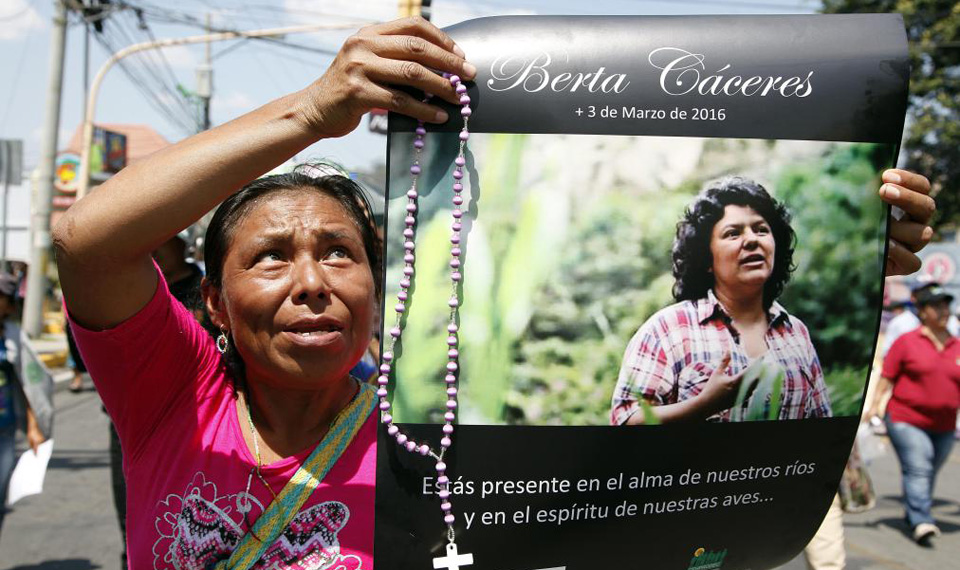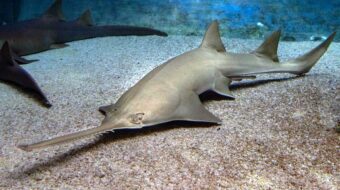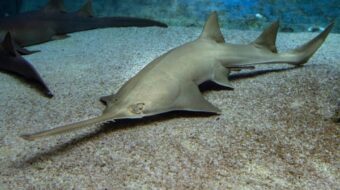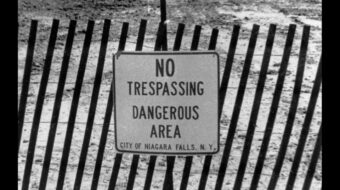
A death squad assassinated Berta Cáceres in La Esperanza, Honduras on March 3, 2016. It’s clear now that state agents killed her and that the United States helped out indirectly.
Cáceres belonged to the Lenca people who, living in southwestern Honduras, are Honduras’ largest indigenous group. As a student in 1993, she co-founded the Civic Council of Popular and Indigenous Movements of Honduras (COPINH in its Spanish initials) to protect her people and advance their rights.
COPINH members marched to Tegucigalpa, the Honduran capital, in 1994 to demand self-government for indigenous communities, a ban on logging, and cessation of violence against indigenous people. The government made promises.
Concerned about survival for small farmers and the danger from big mining and hydroelectric projects, Berta Cáceres and COPINH opposed free trade agreements between Honduras and either Canada or the United States.
On June 28, 2009, the Honduran military removed President Manuel Zelaya from power. The U.S. government knew in advance about the plans. Zelaya had proposed a minimum wage, advanced land reform, brought Honduras into the progressive ALBA alliance, and introduced the idea of a constituent assembly. Berta Cáceres, with “unheard of courage,” led demonstrations against the illegal government succeeding Zelaya’s.
Governments since then, reports Le Monde Diplomatique, “have given up 30 percent of the national territory to transnational mining and hydroelectric companies. Now there are dozens of big dams under construction and more than 300 extracting companies that are plundering the country.” Such was the setting for the culminating phase of Berta Cáceres’ life.
There were victories, though: “COPINH has succeeded in halting the construction of dams, paralyzing deforestation projects, freezing exploitation of mines, preventing the destruction of sacred places, and securing the restitution of lands being exploited to indigenous communities.”
COPINH confronted Desarrollos Energético Company, owner and developer of the Agua Zarca hydroelectric project. Its dam in Western Honduras would cross the Gualcarque River, sacred to the Lenca people. Billionaire banker Camilo Atala and family members – backers of the 2009 coup – hold a controlling interest in Desarrollos Energético.
Beginning in 2012, COPINH activists, led by Cáceres, set up blockades on roads leading to construction sites. Government security forces were protecting company property. Elsewhere, campaigners pressed COPINH’s case before government officials and agencies abroad, including the Inter-American Human Rights Commission.
Deadly violence against the protesters led the World Bank’s International Finance Corporation in 2013 to withdraw financial backing for the construction project. China’s huge Sinohydro Corporation, the contractor building the dam, did likewise. After Cáceres’ murder other banks ended their support. Construction stopped.
Berta Cáceres won the prestigious Goldman Environmental Award in 2015 for contributions to rural sustainability and leadership in opposing the Agua Zarca dam.
Cáceres knew she might die; Honduras is the most dangerous place in the world for environmental activists. Following President Zelaya’s removal in 2009, “at least 124 land and environmental campaigners have been killed.” Two COPINH activists were killed following Cacares’ death.
The New York Times notes that killers are rarely punished and that, “Corruption and criminality…reach into the highest levels of government.” Another reporter quoted a Jesuit priest who insisted, “The government of Juan Orlando Hernández is responsible for the death of Berta Cáceres.”
It’s a shared responsibility. According to the Times, “The United States, which maintains troops, equipment, and trainers at several military sites…has made matters only worse by shoring up the corrupt [Honduran] government with hundreds of millions of dollars in assistance and overt political support.”
With $18 million allocated in 2016, the United States is “the main provider of military and police support to Honduras,” reports the UK Guardian, which claims that Honduran special forces units trained by U.S. military advisors often “target troublesome community leaders.” The Times cited a deserter from a military police unit who said his unit had a hit list and Berta Cáceres’ name was at the top.
The Honduran government has charged eight men with murdering Berta Cáceres, although none “seems important enough to have ordered the crime.” The Guardian identified three of them as present or former members of the Honduran military; one headed army intelligence. One of the civilian suspects is a manager for Desarrollos Energéticos.
Fr. Roy Bourgeois founded School of the Americas Watch, a resistance organization named for a U.S. Army school at Ft. Benning, Georgia. That school has trained tens of thousands of Latin American military officers. It has a different official name now, the Western Hemisphere Institute for Security Cooperation. But Fr. Bourgeois has one more name; two of the three murder suspects with a military background took courses at what he calls the “School of Assassins.”
On March 2, Rep. Hank Johnson (D-GA) reintroduced a bill identified as the “Berta Cáceres Human Rights in Honduras Act.” The proposed legislation with 24 sponsors, all Democrats, would “suspend United States security assistance with Honduras until such time as human rights violations by Honduran security forces cease and their perpetrators are brought to justice.”
The wording hints at U.S. complicity, real or potential, in halting the mission Berta Cáceres shared with so many others. Official intentions show up in U.S. support for corporate takeover of resources belonging to impoverished peoples and in military intervention under the tired pretext of a war on drugs. Governmental disregard for all people’s right to survive, not to speak of thriving, is total.
The Johnson bill submitted to a distracted U.S. Congress surely deserves support. To weigh in, readers may call the Capitol Switchboard at (202) 224-3121 and ask to be connected to their legislator. But more is required: specifically, resistance by all possible means to foreign interventions serving only the upper reaches of U.S. society.












Comments